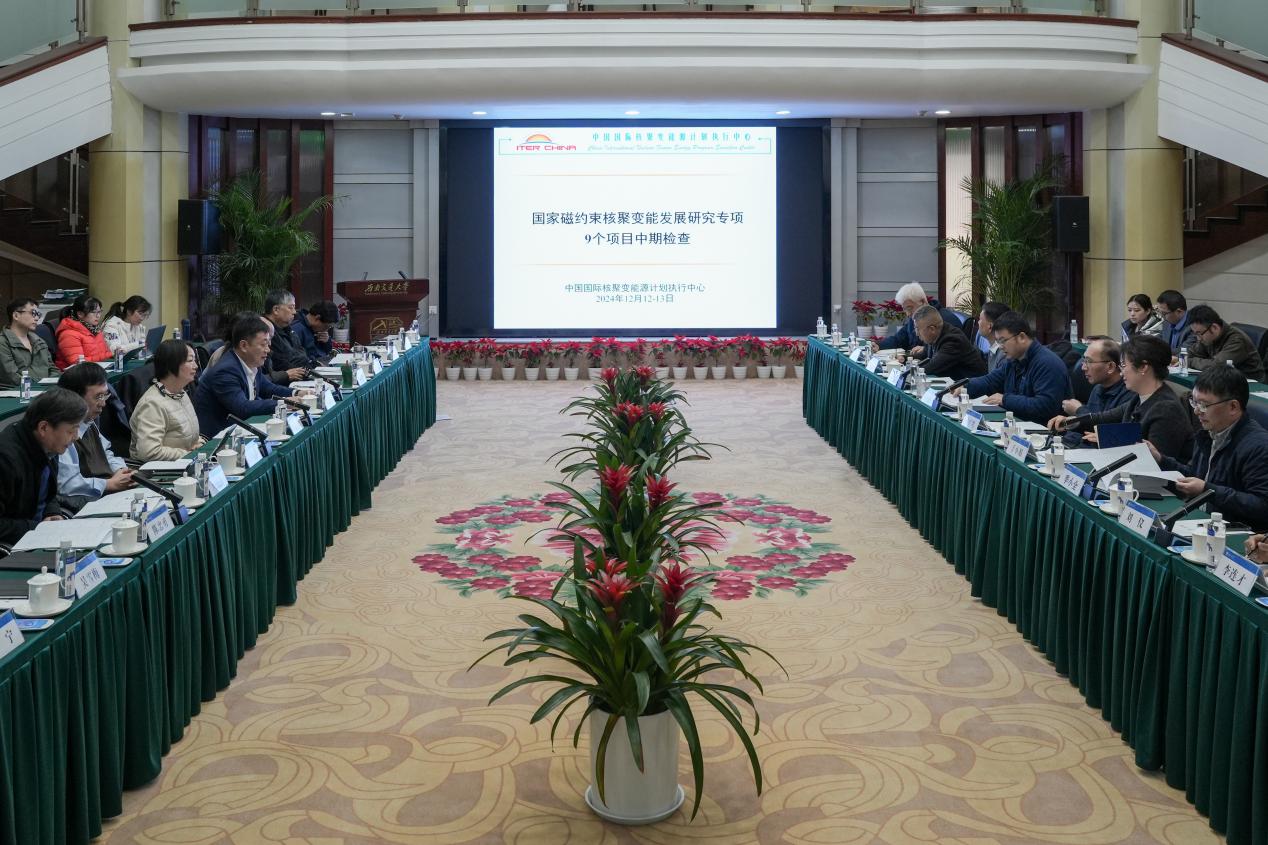From December 12 to 13, 2024, the mid-term review meeting for the National Magnetic Confinement Fusion Energy Development Research Project was held at Southwest Jiaotong University. The meeting was organized by the National Magnetic Confinement Fusion Energy Development Research Project Team and hosted by Southwest Jiaotong University. Attendees included Wang Yan, Director of the China International Nuclear Fusion Energy Program Execution Center; Yan Xiaohong, Deputy Director; Wu Shuqin, Director of the Research and Development Department; Yu Xiaojuan, Deputy Dean of the Institute of Scientific Development at Southwest Jiaotong University; as well as review experts, project leaders, and key members from various universities and research institutes across China, including representatives from the plasma team of the School of Physical Science and Technology.

Director Wang Yan expressed her sincere gratitude to Southwest Jiaotong University for hosting the meeting. She noted that the purpose of the mid-term review meeting was to gain a comprehensive understanding of the project's implementation status, further solidify primary responsibilities, enhance process management, and ensure the smooth progress of the project. Deputy Dean Yu Xiaojuan and Chief Engineer Xu Min from the Southwest Institute of Physics in the Nuclear Industry provided speeches on their respective units' research project achievements and management aspects.
During the meeting, each project leader presented a mid-term report on their assigned projects, detailing research progress, significant findings, and highlights. The expert panel engaged in in-depth discussions and exchanges regarding the projects' technical routes, implementation plans, and existing challenges, offering valuable opinions and suggestions.
This meeting served as a critical milestone for the project's mid-term review, helping project teams further clarify their research directions, optimize implementation pathways, and advance China's magnetic confinement fusion energy research to a higher level. Additionally, it enhanced the university's influence and reputation in the field of magnetic confinement fusion research, attracting more outstanding scholars and research resources, and driving the university to achieve new breakthroughs and progress in this area.





